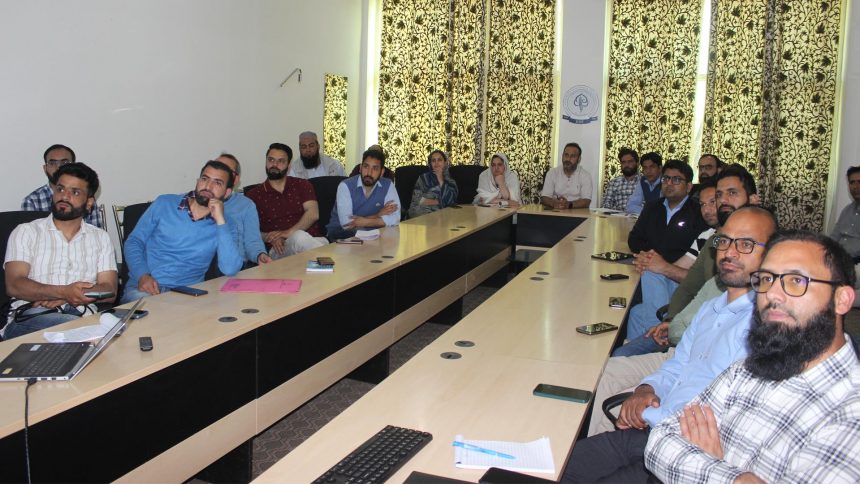Awantipora, Apr 29: As part of the ongoing NEP Lecture Series, the Office of the Dean, School of Sciences, Islamic University of Science and Technology (IUST), organized a lecture titled National Credit Framework: An Overview. The session was delivered by Dr. Peer Bilal Ahmad, Head, Department of Mathematical Sciences and Director, Directorate of Internal Quality Assurance (DIQA), IUST.
The lecture offered a detailed and insightful exposition of the National Credit Framework (NCrF), a key initiative under the National Education Policy (NEP) 2020. Dr. Bilal explained that the NCrF aims to unify and streamline credit systems across various educational institutions and levels, thereby promoting flexibility, accessibility, and inclusivity in learning. He highlighted the framework’s role in facilitating interdisciplinary learning, credit accumulation, and mobility for students across different streams and institutions.
Emphasizing the transformative nature of the NCrF, Dr. Ahmad discussed how it bridges the gap between academic learning and real-world skills by recognizing learning outcomes from formal, non-formal, and informal educational settings. This, he noted, would significantly enhance student employability and ensure greater alignment with evolving industry demands.








